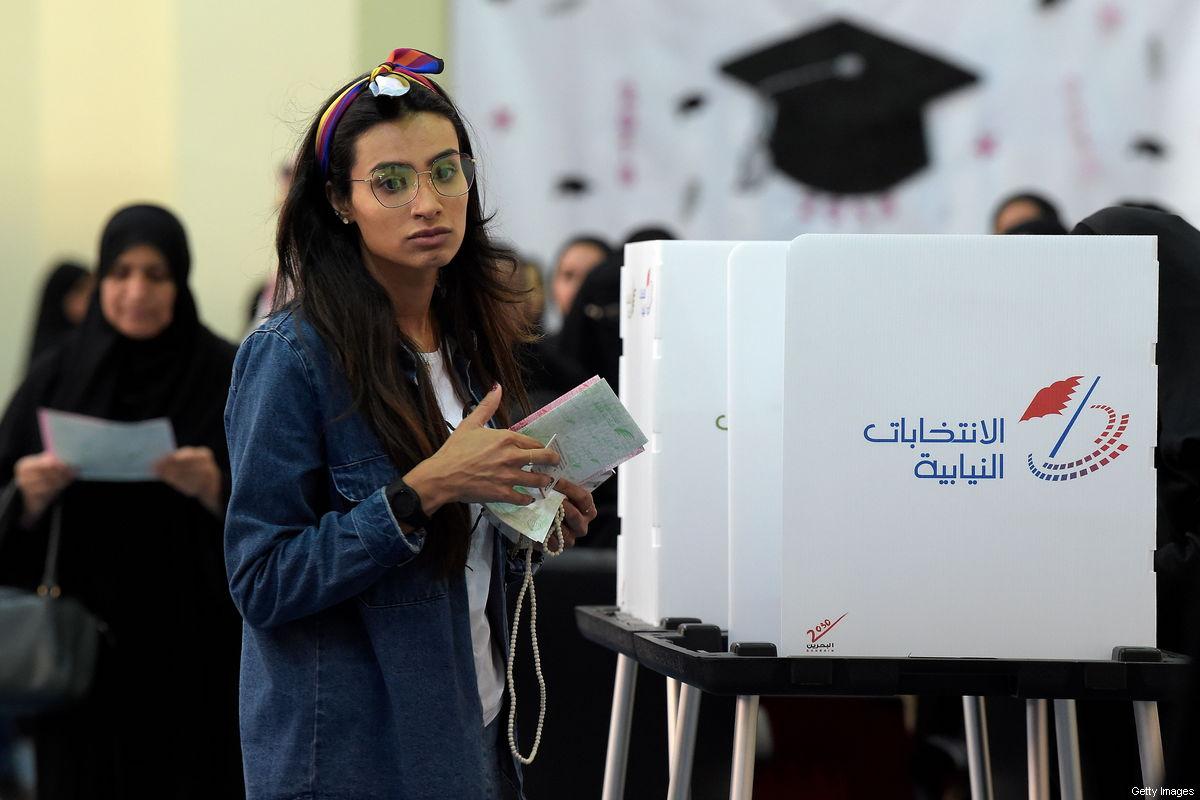Bahrainis voted on Saturday in a parliamentary election from which opposition groups have been barred, amid a crackdown on dissent in the small Sunni-led, Western-allied kingdom, reporters Reuters.
Activists had called for a boycott of the vote, describing it as a “farce”. The government said the election is “democratic” and put voter turnout at 67 percent.
The Sunni ruling Al Khalifa family has kept a lid on dissent since the Shia opposition staged a failed uprising in 2011. Saudi Arabia sent in troops to help crush that unrest in a mark of concern that any power-sharing concession by Bahrain could inspire Saudi Arabia’s own Shi’ite minority.
Riyadh regards the neighbouring island nation, which does not possess vast oil wealth like other Gulf states, as a critical ally in its proxy wars with Iran in the Middle East.
Bahrain, which is home to the US Navy’s Fifth Fleet, has closed the main opposition groups, barred their members from running in elections and prosecuted scores of people, many described by human rights groups as activists, in mass trials.
“Clearly, legislatures from the world’s leading democratic states believe that the upcoming election in Bahrain lacks legitimacy. You simply cannot crush, torture and imprison your entire opposition, call for a pseudo-election, and then demand the respect of the international community,” said Sayed Ahmed Alwadaei, director of the UK-based Bahrain Institute for Rights and Democracy (BIRD).
The government said 506 candidates were running in the election, including 137 for local city councils and the highest number of female candidates.
Bahrain’s state news agency (BNA) said 54 polling stations were open for 12 hours before voting closed at 8 p.m. (1700 GMT).
The kingdom’s Justice Minister Sheikh Khalid bin Ali Al Khalifa said voter turnout was 67 percent, more than in 2014 when opposition groups boycotted the elections. He did not say when the results would be announced.
Only 23, out of 40 incumbents of the House of Representatives, are seeking re-election this year to parliament, which has limited powers.
Earlier, the kingdom’s interior ministry called on Bahrainis to disregard rumours and seek “trusted sources” for information. “Text messages saying your name has been removed and calling on you not to vote are false,” the ministry said in a Twitter post.
The ministry accused Iran of sending the messages saying it was “the source of 40,000 e-messages to disturb the parliamentary and municipal elections.”
Tehran could not be immediately reached for a comment.
Bahrain Emboldened
Many of Bahrain’s Shia say they are deprived of jobs and government services and treated as second class citizens in the country of 1.5 million.
The authorities deny the allegations and accuse Iran of fostering unrest that has seen demonstrators clash with security forces, who have been targeted by several bomb attacks. Tehran denies the allegations.
Human Rights Watch said in a statement that Manama is failing to create conditions necessary for a free election by “jailing or silencing people who challenge the ruling family” and banning all opposition parties.
A leader of dissolved opposition group al-Wefaq said the rise of Saudi Crown Prince Mohammed bin Salman has emboldened Bahrain’s authorities in their crackdown, which has included stripping scores of activists of their nationality.
“They couldn’t go ahead with all the crackdown without the strong backing of the Saudi government. Mohammed bin Salman listens only to hardliners in Bahrain’s ruling family,” Ali Alaswad, who lives in self-exile in London and has been sentenced in absentia to life in prison, told Reuters.
Government opponents say the space for political expression has been shrinking in the lead up to the election. Several activists, including a former lawmaker, were arrested earlier this week for tweeting about boycotting elections, activists said.
“No-one is barred from expressing their political views,” said a government spokeswomen. “Bahrain is home to 16 political societies, the majority of which have put forward candidates for the upcoming elections, and the government fully supports open and inclusive political dialogue.”
[Source: Middle East Monitor]





 WhatsApp us
WhatsApp us 

